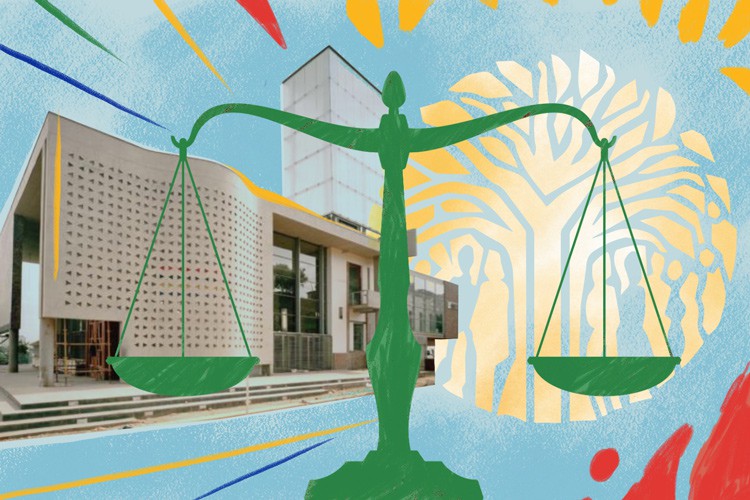
29 August 2022
Illustration: Lisa Nelson
An Alberton mom has won a significant court battle against her medical aid scheme forcing it to pay for an expensive drug that her three-year-old son needs to treat a rare inherited genetic disorder.
Michaney de Wet’s son, Zachary, was diagnosed with Hunter Syndrome a year ago. She applied twice to Medihelp Medical Scheme to authorise the use of Elaprase, an enzyme replacement therapy, which is the only registered treatment for the condition in South Africa. The medical scheme turned her down on both occasions.
In July, her son’s health took a turn for the worse. His specialists noted that there was damage to his heart valves and that his liver was enlarging. De Wet launched an urgent application in the Pretoria High Court.
Read the full judgment here
Please note:
On Friday, Judge Anthony Millar directed Medihelp to authorise and pay for the treatment. It is an interim order, pending the outcome of a complaint De Wet has made to the Council for Medical Schemes (CMS).
De Wet was supported in her application by Rare Diseases of South Africa, which advocates for the interests of people with rare diseases.
In his ruling, Judge Millar noted that Hunter Syndrome affects only 1 in 100,000 people. It is caused by an enzyme deficiency which, if not treated, results in both bodily and organ damage and developmental difficulties.
“It is incurable. However, Elaprase has shown to be an effective treatment that can slow or even halt the progressive degenerative consequences. There is no other treatment available. Zachary’s specialist medical practitioners have motivated it as being an essential part of his treatment,” said Judge Millar.
In its initial refusal, Medihelp gave various reasons, including that the disease was not registered as a prescribed minimum benefit (PMB), and that De Wet’s plan did not cover “chronic medication” or treatment such as Elaprase.
Subsequently, however, the CMS, in considering a complaint against Polmed in a similar matter, ruled that Hunter Syndrome was a PMB condition.
Based on this, De Wet applied once more to Medihelp, but authorisation was again declined.
With Zachary’s condition deteriorating, she could not wait for the adjudication on her case by the CMS because it could take up to two years, she said in her affidavit before the court.
Medihelp opposed the application.
Judge Millar said it conceded, in the light of the Polmed ruling, that Hunter Syndrome was a PMB condition. But in reference to a “nuanced” reading of the Medical Schemes Act and its regulations, it said it was under no obligation to pay for Elaprase because its use was not a “prevailing, predominant public hospital practice”.
It argued that Elaprase was expensive. And that while it may be the prevailing and preferred treatment protocol in the private healthcare sector, the same could not be said for the public healthcare sector.
De Wet, however, put up affidavits from heads of rare disease units at state hospitals to prove its use in several public hospitals, including Charlotte Maxeke and the Red Cross Children’s Hospital.
Medihelp, using terminology in the regulations, then argued that it was not used “prevalently”.
Judge Millar said this was not surprising, given that the condition was so rare.
“What is apparent is that the use of Elaprase is the only available treatment for MPS II in both the public and private sector, that MPS II is a PMB condition and is being prescribed in both private and public hospitals,” the Judge said.
“It is apparent that the deterioration of Zachary’s condition means that if he does not get the treatment, his life and quality of life will be irreparably adversely affected.”
He ruled that pending the outcome of the CMS inquiry, Medihelp must authorise and pay for Zachary to receive all treatment he requires, including Elaprase, within 30 days.